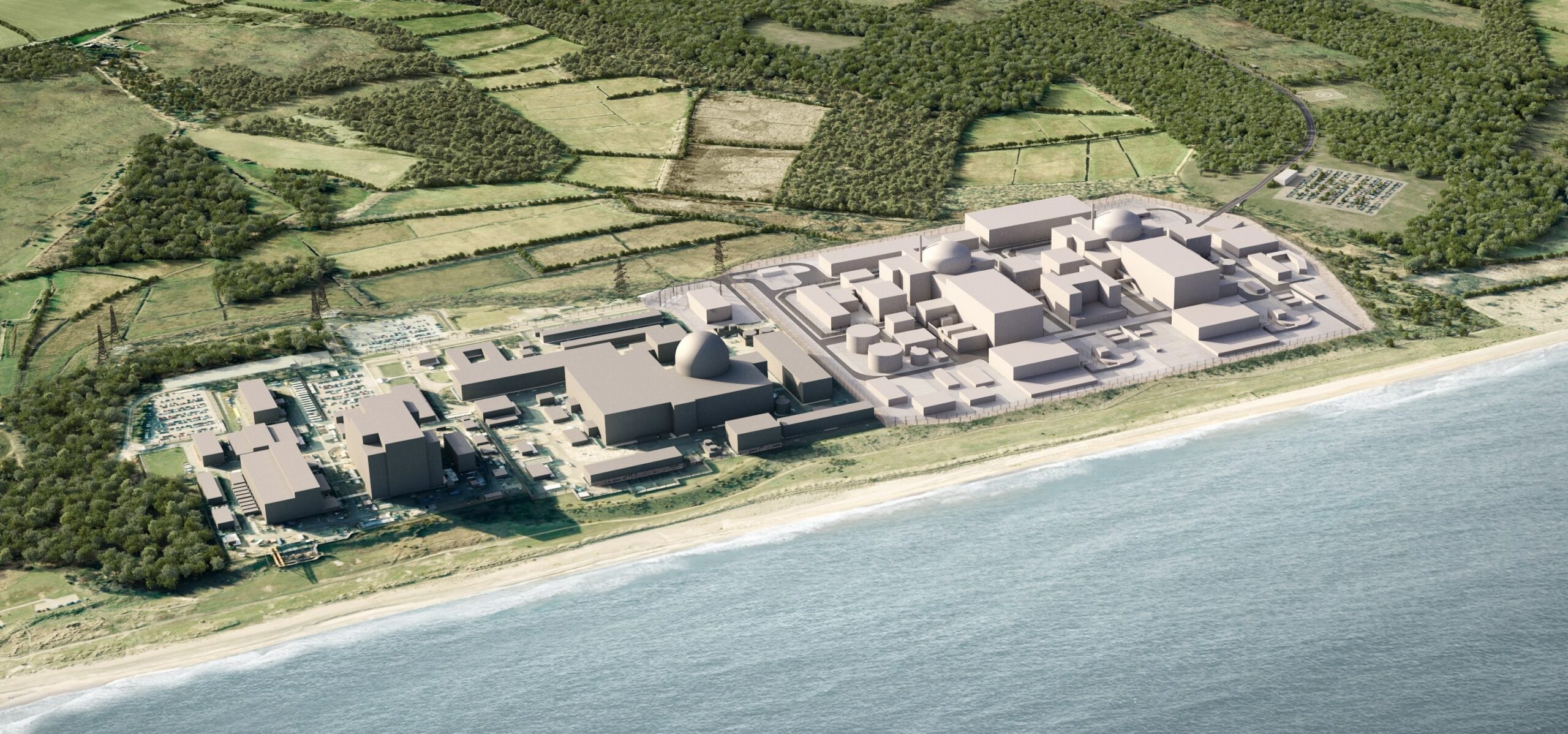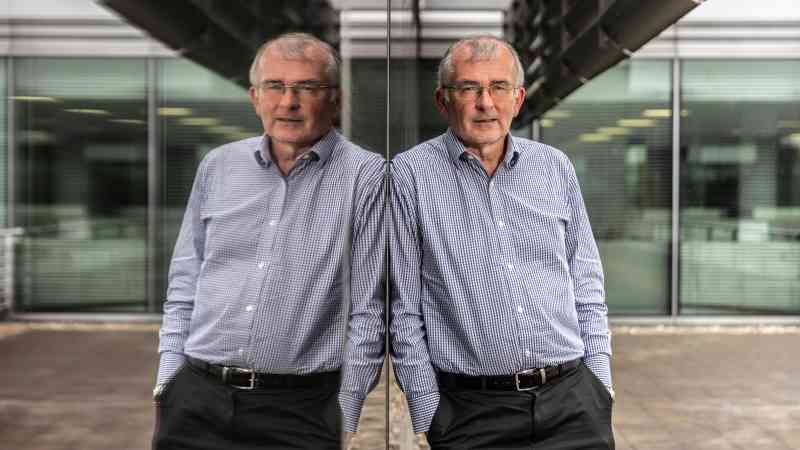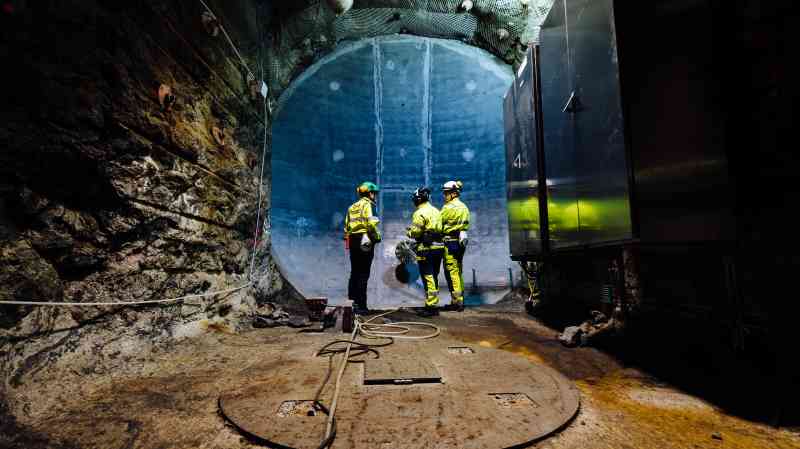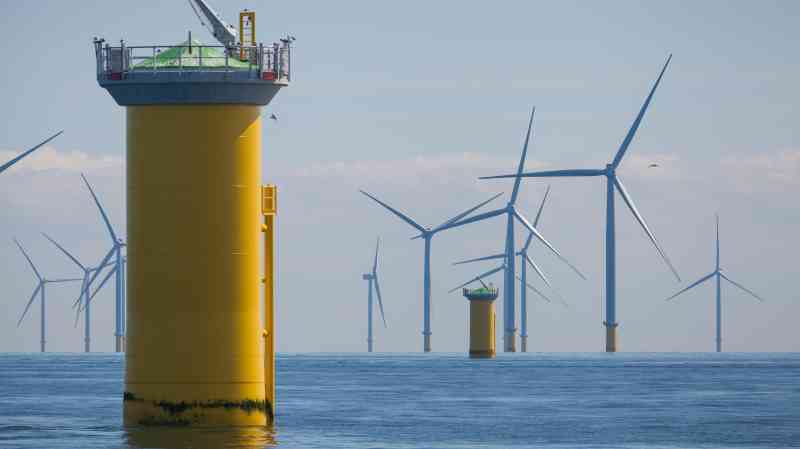The former rail chief now minding the (construction) gap at Sizewell
The delays and swelling cost of building Hinkley Point C, Britain’s first new nuclear power plant in more than two decades, may not necessarily be a bad omen for its sister station. According to Rob Holden, the non-executive chairman of Sizewell C, “good projects start well and get better, bad projects start badly and get worse. While Sizewell is a replication, technically, of Hinkley, it is a very different project.”
If given the go-ahead, Sizewell C would be the country’s largest nuclear power plant alongside Hinkley Point in Somerset, both of which are being developed by EDF, the French state-backed energy group responsible for operating what remains of the UK’s nuclear fleet. The 3.2-gigawatt plant, capable of powering six million homes, is seen as a key part of government plans to revive the nuclear industry, designed to provide a baseload of power as Britain transitions to more renewable energy and intermittent generation within its electricity mix.
Thus far Hinkley Point is running up to £28 billion over budget and is six years past its initial deadline. That has spurred speculation that Sizewell could be beset by the same troubles. Holden, who has led the Sizewell C board since the end of 2022, disagrees. The power plant, which is due to be built on the Suffolk coast, has an “as-built design”, which should mean far fewer changes than its predecessor to the west and less time and money lost. Its developers know the quantities of kit needed and have already been making efforts to procure it.
No budget has been announced for Sizewell by EDF or the government, a conscious decision that stems in part from the bashing the former has received over the problems at Hinkley Point, as well as the potential for so-called cost creep. “Disclosing the budget of a big project, particularly one supported by government, is a recipe for disaster because people will find ways to spend it and they will assume that the government will come in to bail it out.”
Nevertheless, for Holden, a widening gap between the start of construction at Hinkley Point and spades in the ground at Sizewell is a worry. The project is owned 50-50 by EDF and the government, but they are hoping to bring in private investment. A final investment decision is slated for before the end of the year. “What I do know now is that we can’t afford to allow the time gap to be more than what it currently is between the two projects, otherwise we will lose the replication benefits.”
Sizewell will use the same reactor design as Hinkley Point, which started construction in 2016. “Technologies move on and we will be at risk that some of the equipment that was designed and has been built for Hinkley will no longer be available for Sizewell.”
There is nothing new in Holden, 68, overseeing one of Britain’s most expensive and often contentious infrastructure projects. His first chief executive job came in 1999 at London and Continental Railways, the private consortium established to build and operate the Channel Tunnel Rail Link and to own the British division of the Eurostar train service.
The trained accountant was recruited after 12 years working in finance for Vickers Shipbuilding and Engineering in Barrow-in-Furness with nuclear submarines. The man who put him forward for the job, Miles Broadbent, the one-time “godfather of British headhunting”, had jokingly told his prospective employers not to put off by his “Coronation Street accent”.
Holden, who had joined as London and Continental Railways’ finance chief, took the top job after the venture was thrown into crisis when a deep hole emerged in its finances, the result of over-optimistic assumptions on how many travellers would use the rail link between London and the Continent. The developers had not accounted for “Paris or Brussels fatigue” or the proliferation of low-cost airlines. Difficult conversations with the newly elected Labour government followed.
“One of the first things we had to do after they took power was go to John Prescott, who was then Secretary of State for the Department of the Environment, Transport and the Regions, as it was then known, and tell him we couldn’t deliver on the developmentary obligations and that would mean restructuring.” Eventually the government had to rescue the company with a state-guaranteed multibillion-pound bond funding package. Its chief executive and chairman soon left. Holden survived.
He went on to lead the construction of High Speed 1, the rail link between London and the Channel Tunnel, through to its opening in 2007. So what is his take on Britain’s second attempt at a rapid rail link, the troubled High Speed 2? “It was always the wrong project.” Speed, he believes, was the main problem. Designing a railway capable of travelling up to 250 mph does not fit with the geography of the UK. Trying to make it work adds an exorbitant amount of cost.
The Manchester leg of the network has been scrapped and the line is now due to run only between Birmingham and London. Does he think parts of the country outside the south of England tend to get ignored when it comes to big spending on upgrading infrastructure? Yes, probably. “Infrastructure is important to economic development, it always has been. As a Mancunian, I am disappointed they are not getting the infrastructure that was promised to them, but I also recognise that the infrastructure that was promised to them was not the right infrastructure.”

HS2 was meant to learn lessons from Crossrail, or the Elizabeth line as it is now known, a project where costs and time also ran over. Holden led development in its infancy before quitting after less than three years. He wanted a “plural career”.
“The civil servants hated me because I told the then secretary of state Andrew Adonis what he needed to know, not what I thought he might want to hear. And I worked with people who adopted that approach and it’s fine if you want a knighthood, but if you actually want the project to succeed, you’ve got to be honest with yourself.”
Chairmanships at London City Airport and the Submarine Delivery Agency followed, as well as non-executive director roles that included Viridor, the waste management company, and the Nuclear Decommissioning Authority.
Since moving to his present chairman’s role at the end of 2022, he has helped to establish a new board at Sizewell C. He is confident that the project now has a robust enough culture in place. “We don’t want a ‘shoot the messenger culture’ here and I think a lot of government projects suffer from a ‘don’t shoot the messenger culture’. Sharing problems is the best means of finding a solution to the problem.”
That’s just as well. Holden and his board may face renewed scrutiny as they are forced to justify the project to a new government after an election. Labour, should it follow the Conservatives into power later in the year, has said it is committed to getting both Hinkley Point and Sizewell over the line. Is the possibility that it may row back on that pledge a concern? “Clearly there has to be a risk there. There is with any big decision on this.”
Q&A
Who is your mentor? I’ve learnt from many I’ve worked with/for, but the person who comes to mind is Dick Evans, the former chief executive/chairman of British Aerospace. I only met him once, but when he took the “knocks”, he “bounced back”.Does money motivate you? To some degree, but it has never been as important as doing the right thing for the project.
What was the most important event in your working life? Being in the audit room in 1983 when asked to go on a six-week secondment to the shipyard in Barrow-in-Furness. I stayed 13 years!Which person do you most admire? Nelson Mandela. His resilience during captivity and his grace in the years after his release.What is your favourite television programme? Live soccer when [Manchester] City are playing and winning.What does leadership mean to you? Applying common sense, using one’s experience and listening to others, their ideas and concerns, and then acting upon them.How do you relax? Walking and spending time in south Cumbria, especially with a pint of real ale.
CV
Age: 68Education: Reddish Vale High School (Stockport); Lancaster UniversityCareer: 1977: student accountant, audit supervisor, Arthur Young; 1983: financial controller, group finance director, Vickers Shipbuilding & Engineering/GEC Marine; 1996: finance director, chief executive, London & Continental Railways; 2009: chief executive, Crossrail; 2011: non-executive roles for High Speed 1, London City Airport, Electricity North West, Viridor, The Submarine Delivery Agency and Sizewell C.




Post Comment